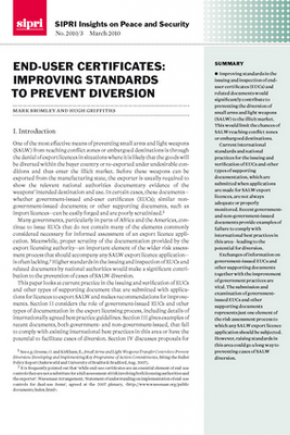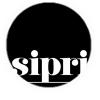End-user Certificates: Improving Standards to Prevent Diversion
Improving standards in the issuing and inspection of end-user certificates (EUCs) and related documents would significantly contribute to preventing the diversion of small arms and light weapons (SALW) to the illicit market. This would limit the chances of SALW reaching conflict zones or embargoed destinations.
Current international standards and national practices for the issuing and verification of EUCs and other types of supporting documentation, which are submitted when applications are made for SALW export licences, are not always adequate or properly monitored. Recent government and non-government-issued documents provide examples of failure to comply with international best practices in this area—leading to the potential for diversion.
Exchanges of information on government-issued EUCs and other supporting documents together with the improvement of government practices are vital. The submission and examination of government issued EUCs and other supporting documents represents just one element of the risk assessment process to which any SALW export licence application should be subjected. However, raising standards in this area could go a long way to preventing cases of SALW diversion.
I. Introduction
II. Types of documentation
III. Typical problems
IV. Recommendations
V. Conclusions


